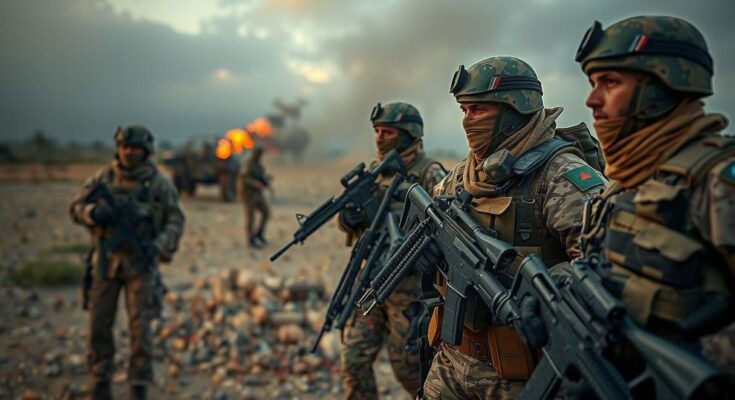Seven Wagner mercenaries were reported killed in a recent al Qaeda affiliate attack in Mali, raising concerns about the dangers faced by these forces. Their operations in the region, aimed at aiding the military junta against various insurgencies, have been met with significant criticism. This incident reflects the perilous nature of their engagements in a region plagued with escalating violence from Islamist militants.
Recent reports have indicated that seven Wagner mercenaries were killed in an attack in Mali, a incident claimed by an affiliate of al Qaeda. This tragic event highlights the ongoing risks that Wagner forces encounter while operating in Mali, where they have been deployed to support the military junta. Their mission involves combating various insurgent groups throughout the Sahel, a region that is currently experiencing heightened violence from Islamist militants.
Previously, in July, Wagner faced significant losses during confrontations with mainly Tuareg rebels and Islamist factions near Mali’s border with Algeria. Such confrontations have revealed the hazardous conditions under which mercenaries operate in West Africa, particularly those working with military-led governments.
The recent attack underscores the increasing instability in Mali, amidst concerns regarding Wagner’s role in allegedly intensifying the conflict and deteriorating security within the Sahel. Analysts and observers continue to criticize the presence of such mercenary groups in the region, citing their impact on local conflicts and security dynamics.
The conflict in Mali has been exacerbated by the increasing operations of mercenary groups like Wagner, which are reportedly contracted to assist government forces in combatting insurgency and terrorism. The Sahel region is facing a dire security crisis, marked by violent clashes between state forces and various Islamist militant groups, as well as ethnic conflicts. Wagner’s involvement, however, has provoked criticism for complicating an already volatile situation, raising concerns about their effectiveness and the potential for further destabilization in the area.
In summary, the recent deaths of Wagner mercenaries in Mali reflect the dangerous environment in which they operate, alongside the increasing unrest in the region. The involvement of such mercenary forces raises significant questions about their contributions to stability and security in Mali and the broader Sahel region. The persistent violence highlights the complexities of combating insurgency amidst the overarching criticisms of foreign mercenaries’ roles in local conflicts.
Original Source: m.economictimes.com




